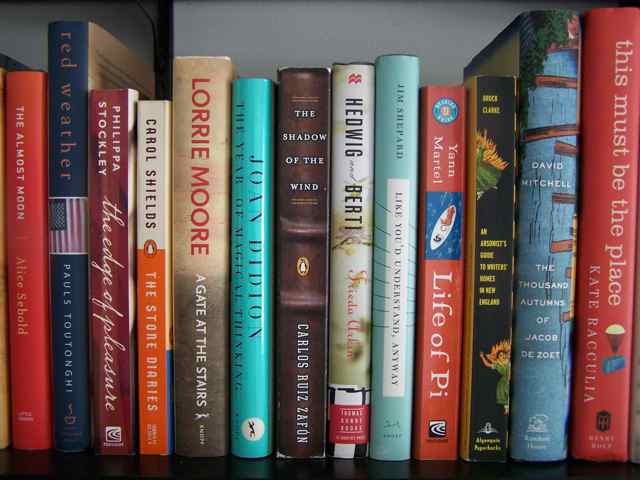 Connie Willis is one of my favorite writers, so I was ready to accept her word that the story she started in Blackout (Feb. 2010) of time travelers stuck in the London Blitz needed to stretch over two books (500+ and 600+ pages, respectively) and would be continued in All Clear (Oct. 2010). Having just come to the end of All Clear, I’ll concede to the few complaining, online customer reviewers that the two-book saga could probably have been edited down to one long book, but some of the reader’s sensation of total immersion in the day-to-day of Londoners living through the Blitz — not knowing which way the war would go — would have been lost.
Connie Willis is one of my favorite writers, so I was ready to accept her word that the story she started in Blackout (Feb. 2010) of time travelers stuck in the London Blitz needed to stretch over two books (500+ and 600+ pages, respectively) and would be continued in All Clear (Oct. 2010). Having just come to the end of All Clear, I’ll concede to the few complaining, online customer reviewers that the two-book saga could probably have been edited down to one long book, but some of the reader’s sensation of total immersion in the day-to-day of Londoners living through the Blitz — not knowing which way the war would go — would have been lost.
For most of the two books, a few young time-traveling historians from 2060 are bravely facing down the fact that they have no way of getting back to their own time, yet still try frantically to rescue at least the others. Even more alarmingly, their meddling in the past may have changed the future irrevocably, including the outcome of World War II, as well as whatever events led to the discovery and invention of time travel at Oxford University.
As for the two-book story, if you’re a fan of Connie Willis’ writing, her light touch with the most serious of topics and her haplessly heroic characters, the more words the better.
Here’s how Michael Dirda, writing in the Washington Post, recommended Blackout to readers:
If you’re a science-fiction fan, you’ll want to read this book by one of the most honored writers in the field (10 Hugos, six Nebulas); if you’re interested in World War II, you should pick up “Blackout” for its you-are-there authenticity; and if you just like to read, you’ll find here a novelist who can plot like Agatha Christie and whose books possess a bounce and stylishness that Preston Sturges might envy.
And here’s what Julie Phillips writing for the Village Voice, says about Connie Willis:
Not all science fiction looks like science fiction. Connie Willis has won more Hugo and Nebula awards than almost anyone in the field, but her books are often set in the past, while her style is more Dorothy Sayers than Neil Gaiman. Still, she belongs in genre more than in literature, because genre fiction—SF, YA, mystery—is the traditional home of narrative pleasure, and Willis can tell a story like no other.
I should mention that Oxford University time-traveling historians and even a few characters from Blackout and All Clear appear in earlier books and stories by Connie Willis, most famously in The Doomsday Book (1992). Click here to read an eloquent post about The Doomsday Book by a book blogger at Things Mean A Lot.
